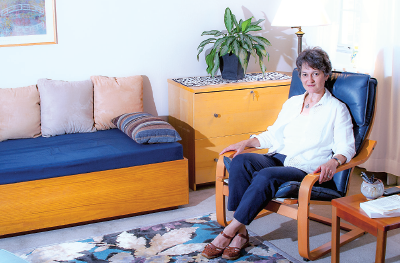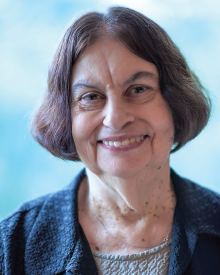Beginning early next year, two seasoned psychoanalysts will offer early career psychiatrists a unique “virtual rounds” in psychodynamic psychotherapy.
Jessica Brown, M.D., of Washington, D.C., and Estelle Bender, M.D., of New York will be leading “Clinical Enhancement of Psychodynamic Skills: Virtual Rounds,” a series of online interactive discussions about using psychodynamic skills in patient care. The rounds are especially intended for early career psychiatrists (ECPs)—defined by APA as those in the first seven years of practice since graduating from residency.
Brown and Bender will lead two separate groups that will meet for a total of eight sessions beginning in January 2016. Brown’s group will begin Wednesday, January 28, at 8 p.m. EST, and will meet every second and fourth Wednesday after that from 8 p.m. to 9:30 p.m. Bender’s group will begin Monday, January 11, at 8 p.m. EST and will meet every second and fourth Monday from 8 p.m. to 9:30 p.m. EST.
There is no charge for the virtual rounds (they are being supported by a grant from the Laughlin Fund). Participants will need a computer with microphone and camera; Brown and Bender will be using Giro Meeting, a web-conferencing software, to host the virtual rounds.
“The sessions will be very interactive, and their success will come from the participants’ willingness to share their experiences with talking with their patients, with due regard for confidentiality,” Norman Clemens, M.D., president of the American College of Psychoanalysts, which is sponsoring the virtual rounds, told Psychiatric News. “Both teachers expect to bring their own experiences to the table, as well as psychoanalytic thought, theory, and practical knowledge about how to work with patients with a variety of problems. This is not about how to do psychoanalysis, but rather about the many ways in which psychodynamic skills in a good working alliance can be invaluable in understanding and helping people.”
Brown and Bender both have a profound understanding of psychodynamic psychotherapy, Clemens said. “Jessica Brown is a well-trained psychoanalyst in Washington, D.C., who spends part of her time working in a community mental health clinic practicing general psychiatry and part of her time seeing patients in psychoanalytic therapy and psychoanalysis in her private practice. She is in mid-career but has vivid memories of the early career years juggling psychoanalytic training and practice development along with the needs of a young family, so she is very much in touch with the practice environment that ECPs have to deal with.
“Estelle Bender is a psychoanalyst who has had a long career as a teacher of medical students at Columbia and medical students and residents at Cornell, where she is a clinical associate professor of psychiatry and has won three awards for teaching medical students psychodynamic psychotherapy. She is on the faculty of the Columbia Psychoanalytic Center.”
Brown said that the rounds will include “a little bit of didactics—not a lot” and that participants should come prepared for an interactive discussion. “We would like each person to present clinical vignettes or case material that they might be struggling with so we can discuss how to use psychodynamic skills in their approach,” she said. “I expect an enriching experience with like-minded people who have chosen psychiatry and value and appreciate how psychodynamics can enrich any psychiatric practice.”
Bender concurred. “I have supervised residents in psychodynamic psychotherapy for 37 years at Cornell and feel it has been a very enriching experience,” she said. “I want to offer that same experience to early career psychiatrists who may not have had that training in their residency. We are excited about using new computer technology to reach ECPs all around the country.
“Our plan is to discuss basic psychodynamic concepts such as empathy, transference and countertransference, object relations, and resistance and then allow participants to share case material in a safe, collegial environment that illustrates the basic concepts and highlights common problems in doing psychodynamic psychotherapy. The goal is to encourage more ECPs to feel more competent and secure in their knowledge base about psychotherapy.” ■
Psychiatrists interested in participating in the virtual rounds should contact Patricia Troy at (410) 647-5002 or
[email protected].


